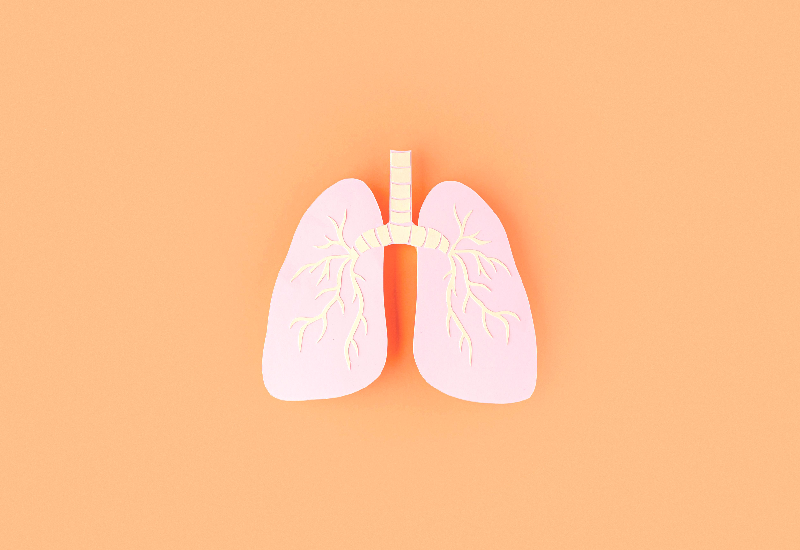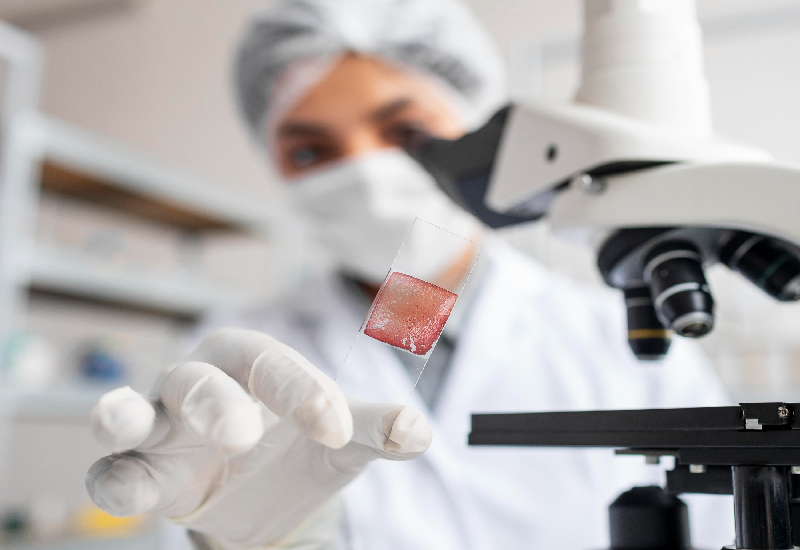Lung cancer is one of the most common cancers in southeastern Asia. Lung cancer is a cancer that develops in the lungs and can spread to other organs.
It is a serious health condition and can cause severe harm. Early detection plays a key role as the treatment depends on the stage of cancer and the spread.
There are two common types of cancer,
- Non-small cell lung cancer (NSCLC): This is the most common type of lung cancer and it’s slower to grow and spread to the other parts of the body.
- Small cell lung cancer (SCLC): This cancer is most likely linked to smoking; it is more aggressive than NSCLC and spreads and grows quicker to other body parts.
Causes of lung cancer
- Smoking: Over 90% of lung cancer cases are caused by smoking. When smoke is inhaled the lung tissues are damaged. This damage causes the cells to behave rudely which can increase the risk of lung cancer.
- Exposure to hazardous substances: Chemical substances such as asbestos, uranium, arsenic, cadmium, chromium, nickel and some petroleum products are hazardous to our body and can expand the risk of lung cancer.
- Other risk factors: A very important factor would be your lifestyle choices, if you are a smoker then you are on the verge of cancer. Other factors are the family history of cancer and a slight chance that you’ve had radiation therapy.
Some common symptoms of cancer
As there are no significant early symptoms for lung cancer it becomes an obstacle even though lung cancer is treatable is detected early.
The most common signs are,
- Chronic cough, dry cough or with phlegm or blood. Cough can be thought of as benign and can be looked upon.
- Respiratory issues, Frequent respiratory infections, shortness of breath or wheezing during daily activities.
- Pain areas, Sharp pains in the chest or ribs, may worsen while breathing or coughing.
- Losing weight with no explanation over a short period of time.
- Lack of energy, Restlessness.
The early signs and symptoms of cancer could be subtle yet persistent. Understanding the risk and the symptoms can be efficient for early detection.
Diagnostic methods for lung cancer
- Chest X-ray
A chest X-ray is usually the first test to be done to detect any abnormalities in the chest cavity. However, X-Ray does not provide details for the diagnosis, so this is followed by more detailed tests.
- CT scans
CT scans are the base of lung cancer diagnostics. This provides the healthcare provider with the broad spectrum such as the size, the location and the potential spread of the cancer.
- Tissue biopsies
A biopsy is a procedure to remove a piece of tissue or sample cells from your body to get it tested and know the specific type of lung cancer. More than identifying, a biopsy gives the healthcare provider a better understanding of the cancer’s characteristics to formulate the treatment.
- PET scans
PET scans can examine and highlight the cell activity, offering the understanding of the cancer spread, Aiding in the treatment choices.
- Liquid biopsies
Unlike the traditional blood tests, Liquid biopsies such as RGCC’s are more insightful overlook into cancer care. This simple blood test can help understand the CTC’s and genetic mutations that take place with cancer. Liquid Biopsies helps untangle the genomic complexes of cancer and makes the cancer path an empowering one.
RGCC’s cancer care
At RGCC, our experts personalize and go beyond transforming cancer care. Our focus transcends identification and diagnosis to stop in on catering customized treatments to unique needs.
Our tests provide genetic and genomic profiles of a cancer cell to give accurate treatment plans.
Our CTC tests and Onconomics Panels are comprehensive in their ability to specify characteristics of a patient’s cancer to help decipher treatment options appropriate for them.
Additionally, our specialized tests utilize state-of-the-art molecular biology and artificial neural networks to isolate and analyze over 90 genes for early cancer screening. The Onco-D-Clare test is a true testament to our commitment to cutting-edge cancer diagnostics.
Contact us
Our state of art tests provides a thorough understanding of your cancer, enabling you to take a proactive stance in your diagnosis and treatment journey.
Explore revolutionary cancer testing solutions from RGCC that illuminate the path to improved cancer care. We offer a transformative shift in cancer care technologies and protocols.
Our goal is to equip patients with unique insights into their cancer biology, steering them toward success in their cancer journey.







